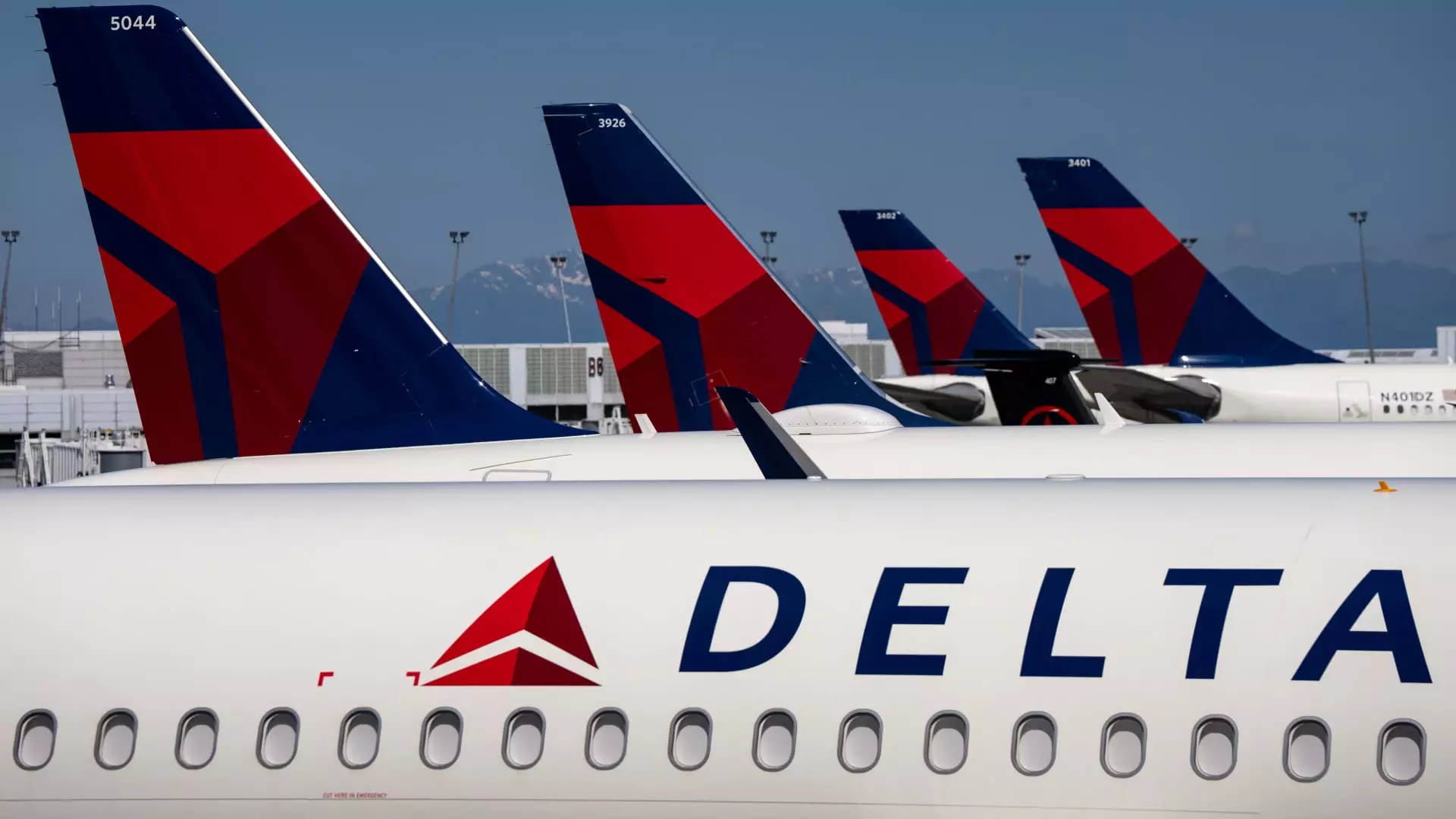Delta Air Lines, often viewed as a bellwether for the airline industry, is currently navigating treacherous waters. The company recently announced its decision to halt expansion plans for the latter half of 2025 due to a significant decline in bookings. This move not only reflects the airline’s internal analysis but also seems to echo the broader sentiment among corporations grappling with fluctuating consumer demand. CEO Ed Bastian has openly critiqued the trade policies under President Donald Trump, labeling them as “the wrong approach.” Altogether, these narratives paint a concerning picture for the airline’s future—a narrative that could send ripples through the entire industry.
The travel demand that once flourished appears to be dwindling, with Delta’s main cabin bookings recently reported as weaker than anticipated. This shift isn’t just about Delta; it signals that corporate America may be tightening its belts in response to economic trepidations. Given that Delta was once buoyed by the optimism of strong travel figures, this unexpected downturn raises a multitude of questions about consumer confidence. Such fluctuations shouldn’t be dismissed lightly; they are harbingers of deeper economic anxieties manifesting in everyday choices—choices like business trips, family vacations, and leisure outings.
An Uncertain Future: The Numbers Don’t Lie
As the numbers roll in, Delta’s reported projections further amplify concerns. Forecasts indicate revenue could either decline or only slightly increase—an unsettling departure from Wall Street’s expectations of a modest growth rate. With adjusted earnings per share anticipated to fall short of analyst predictions, the streak of profitability Delta has managed to maintain seems ripe for disruption. The airline recently revised its earnings outlook for the first quarter, citing a weaker-than-expected demand from both corporate and leisure travelers. All these factors paint a complex picture for Delta as it gears up for a future that could be anything but bright.
The airline’s once bullish outlook, which had predicted 2025 to be its “best financial year in history,” now looks overly ambitious. This commentary strikes a jarring contrast with the recent decline in consumer sentiment and business spending. Unexpectedly, customers are rethinking their travel options, bringing the once overpowering optimism to its knees. When the CEO of Delta publicly articulates these concerns, it’s not simply corporate speak; it encapsulates the palpable anxieties felt across various sectors of the economy.
Regulatory Backlash: A Dual Edged Sword
Bastian has previously lauded the Trump administration’s regulatory approach, cleaning up earlier industry misconceptions as a “breath of fresh air.” Yet, now he openly grapples with the fallout of these policies. The tension between regulatory measures and economic realities is growing increasingly visible, as airlines brace themselves against an unpredictable marketplace. In an atmosphere where global trade considerations can shift overnight, the industry finds itself in a self-preservation mode. Delta aims to protect margins and cash flow, focusing on manageable aspects of its operation rather than grandiose increases in capacity.
A stark realization becomes evident as we consider the broader implications of these shifting trade policies. For an airline that thrives on the foundation of travel, maintaining a robust consumer base is paramount. However, when these environmental variables are taken into account, the complexities of sustainable business growth become painfully clear.
Economics at Play: The Broader Impact
Delta is not an isolated case. Analysts worry that Delta’s cautious retraction is only a precursor to a wider industry trend. Various airlines, including industry giants like United, American, and Southwest, prepare to unveil their own earnings reports against the backdrop of rapidly evolving market sentiment. As the fallout of these fluctuating booking patterns spreads, it becomes evident that Delta’s turbulence is a reflection of an economically unsteady environment.
If Delta is seen as a canary in the coal mine, then all eyes are on the soon-to-be-released earnings from its competitors. A domino effect could be looming, indicating that broader economic challenges—such as the retraction of consumer spending and shifting corporate policies—could severely impact the airline sector. Are we witnessing the beginning of an industry-wide reckoning? The potential ramifications touch not just airline revenue, but the livelihoods of thousands dependent on this sector’s vibrancy.
In light of these revelations, the confidence in airlines as a pillar of economic revival is increasingly being called into question. What remains clear, however, is that Delta Air Lines’ current trajectory demands urgent attention—not just from their leadership but also from stakeholders who rely on the economic health of the airline industry as a whole.

